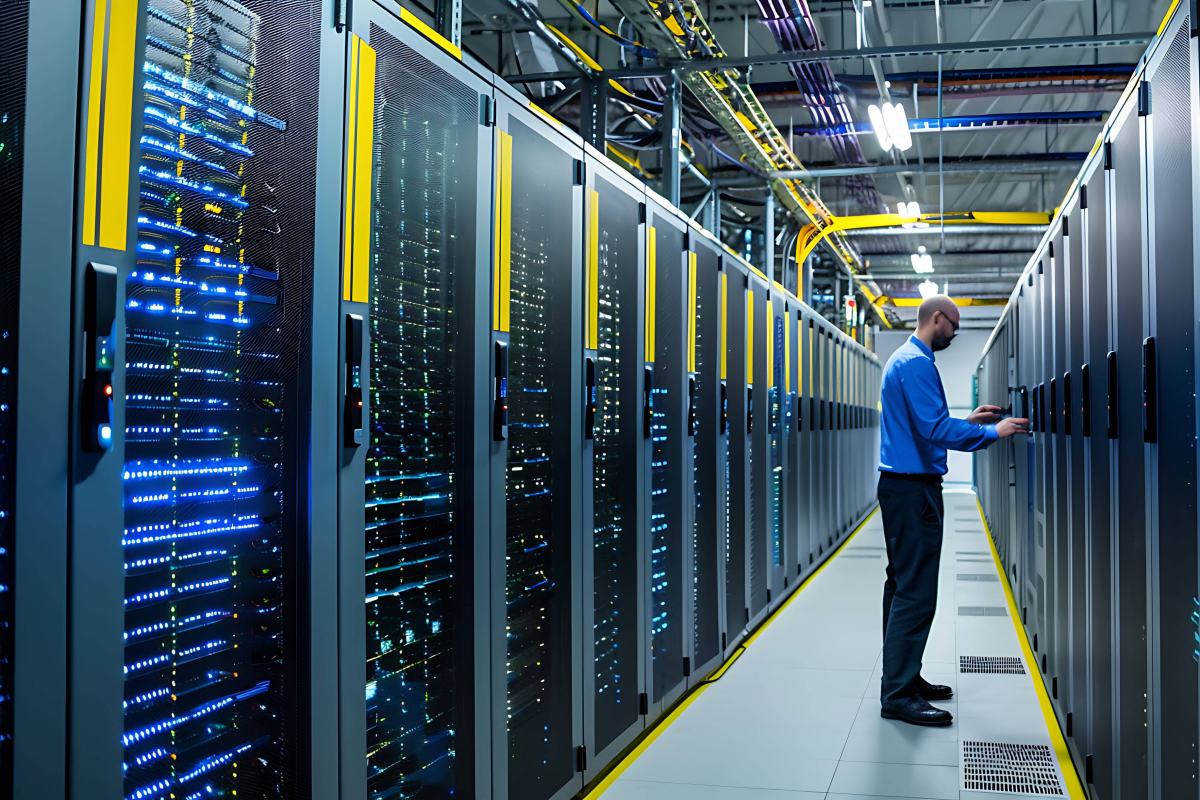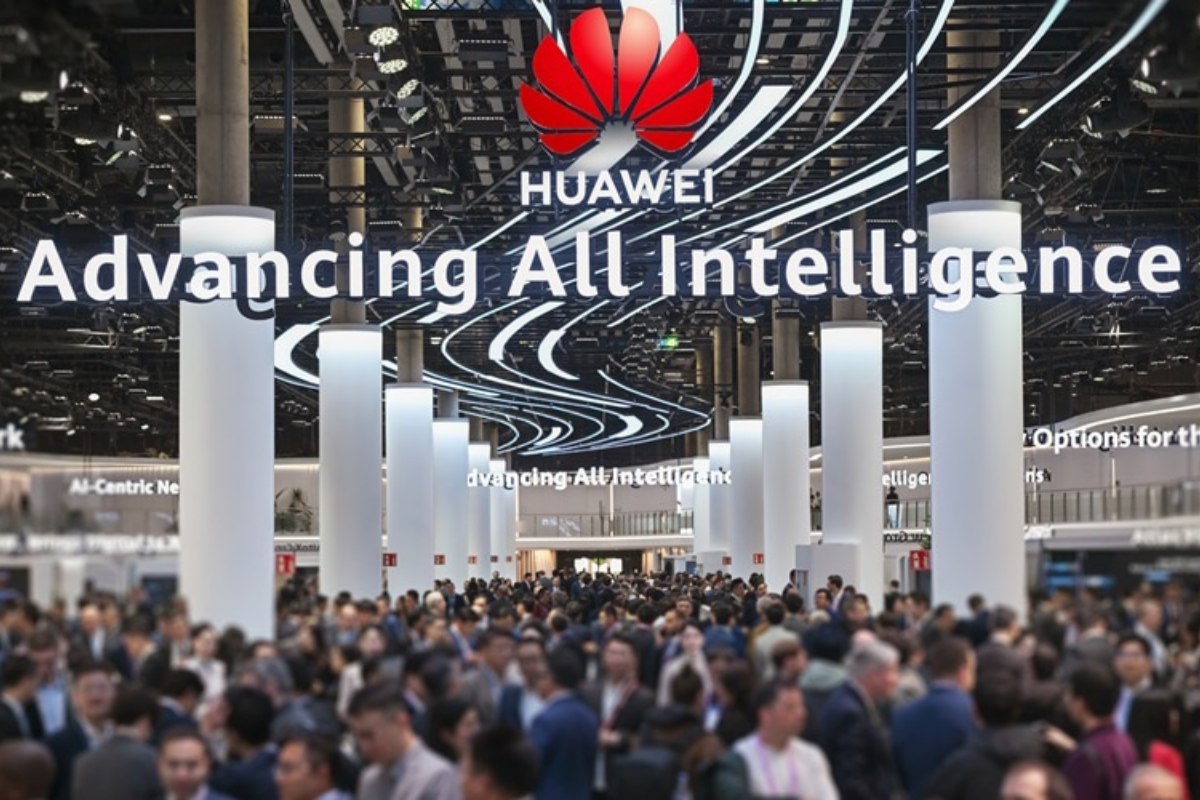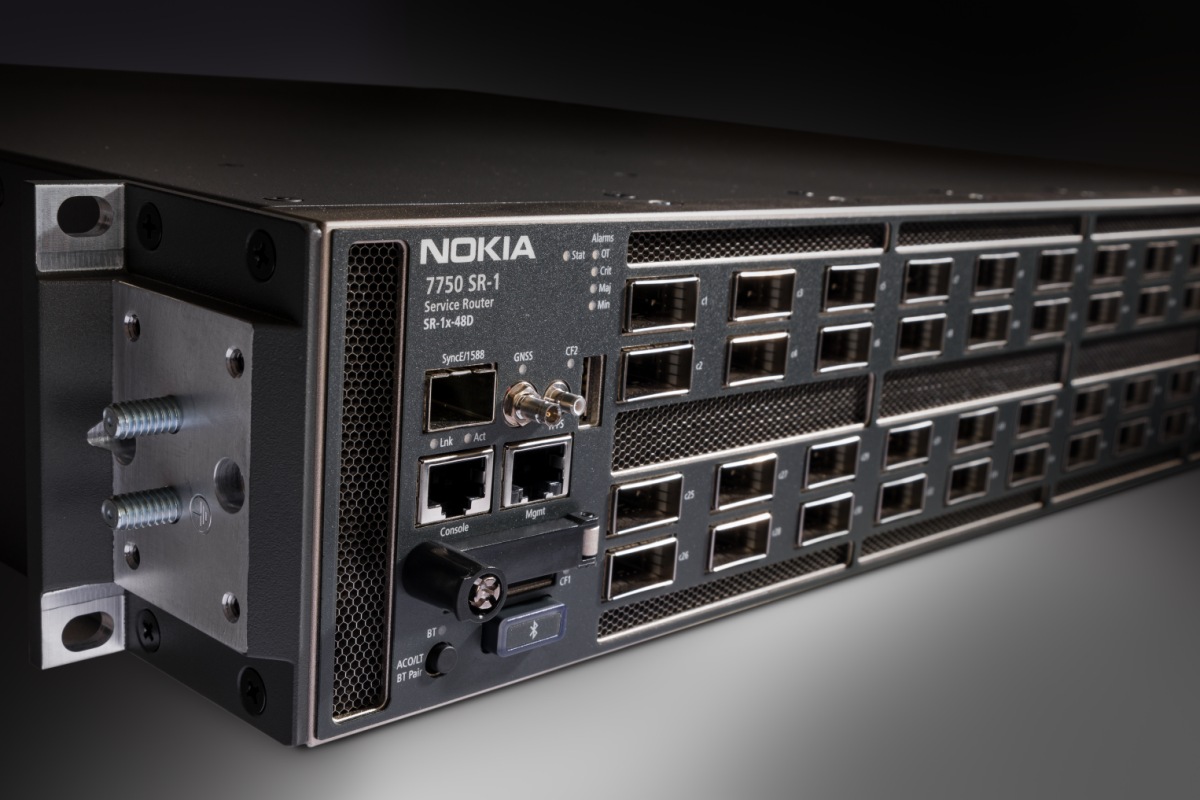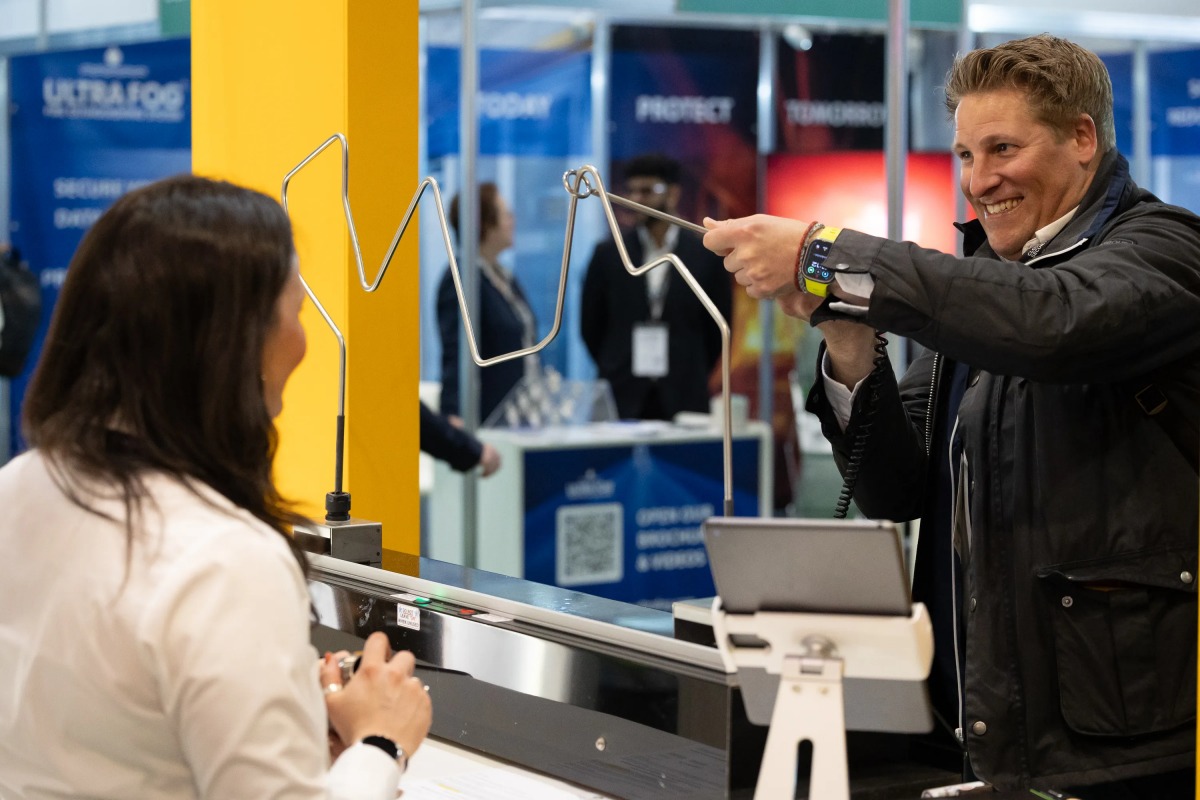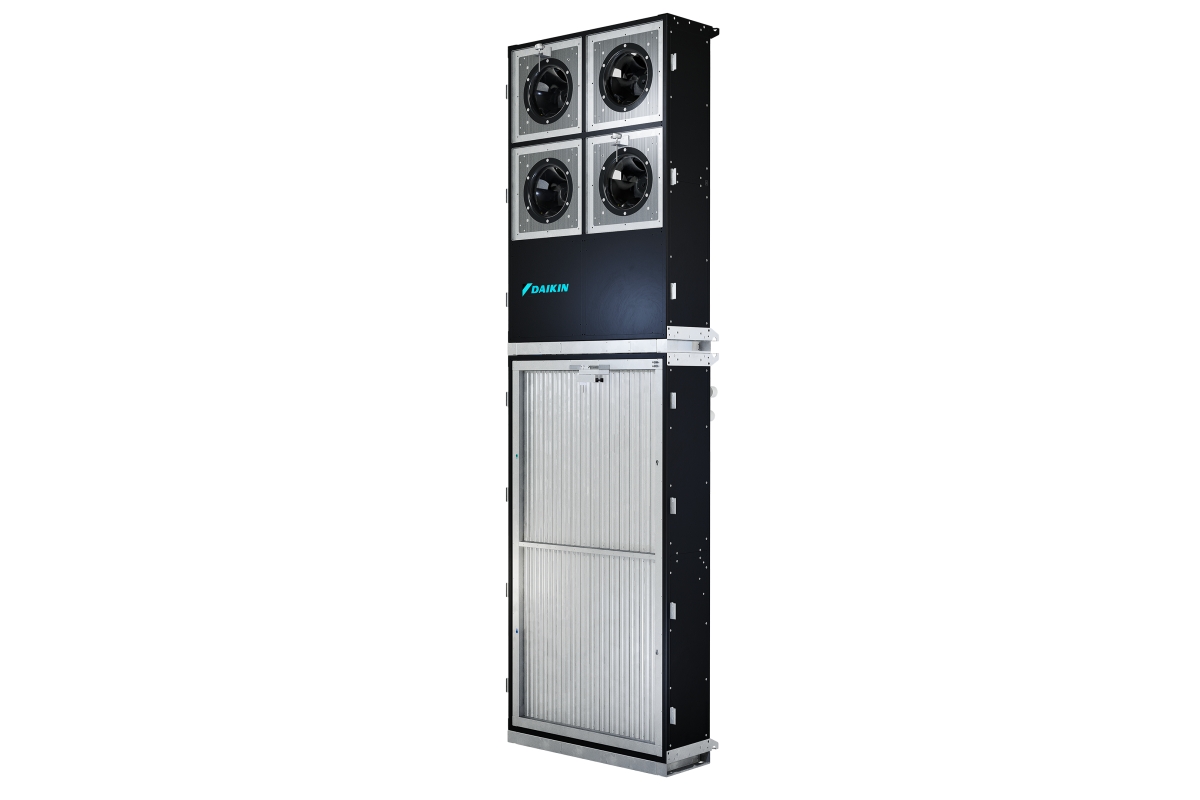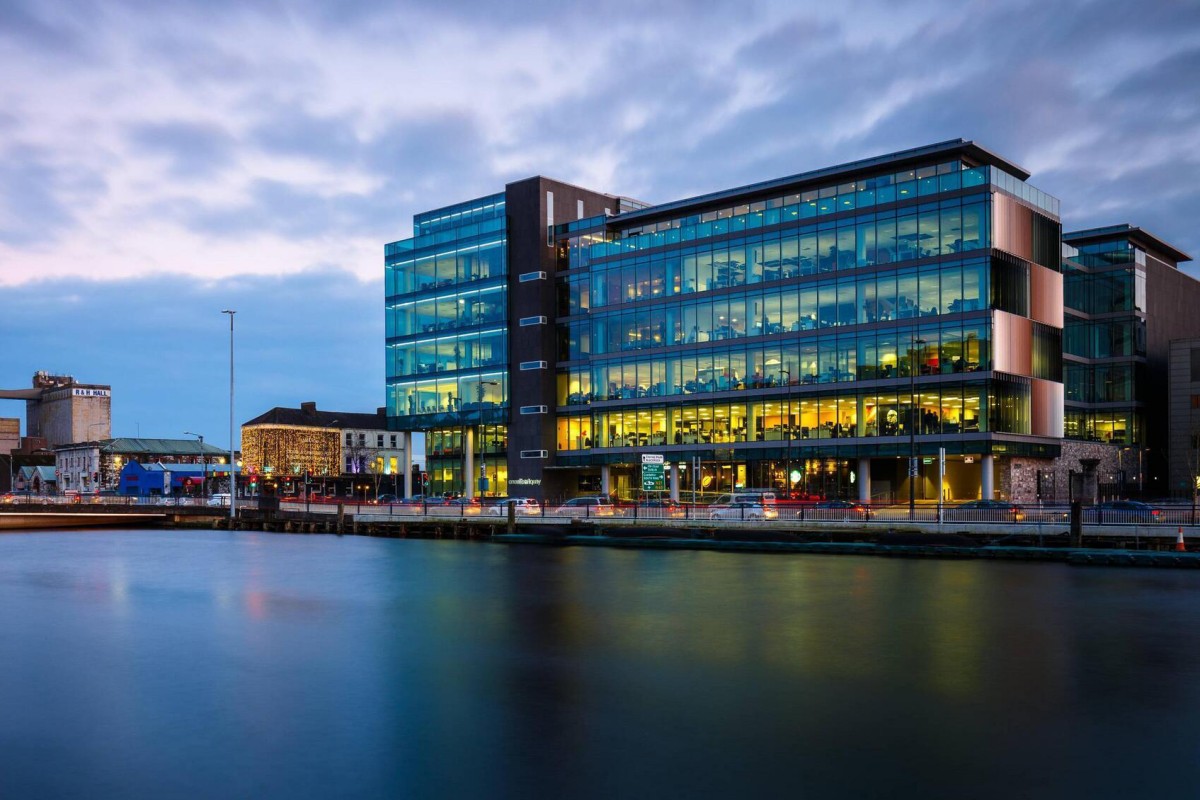Data Centre Infrastructure News & Trends
Data Centre Business News and Industry Trends
Data Centre Infrastructure News & Trends
Innovations in Data Center Power and Cooling Solutions
Insights into Data Centre Investment & Market Growth
News
'Rising power costs top data centre concern'
New research from UK colocation data centre provider Asanti shows that AI adoption, resilience pressures, and rising power costs are reshaping data centre strategies for UK organisations, with material implications for managed service providers (MSPs), cloud providers, and infrastructure partners.
In a survey of 100 senior IT decision makers, nearly half (48%) said AI adoption will have a large influence on their IT infrastructure strategy over the next three years, ahead of regulatory change and hybrid or multi-cloud capabilities. IT leaders report average rack densities of 8kW per rack today, rising to 11kW within 12 months, as AI-heavy workloads and high-density compute drive up power and cooling requirements.
Rising power costs are already the top concern regarding current data centre environments, cited by 52% of respondents, ahead of maintaining uptime (48%). Over the next three years, rising energy costs (34%) and sustainability commitments (33%) sit alongside AI, resilience, and regulatory change as core inputs to infrastructure strategy.
Stewart Laing, CEO of Asanti, notes, “AI has moved from pilot projects to production workloads, and with it comes a step-change in rack density, power demand, and cooling requirements. Organisations are realising they need the right mix of facilities, partners, and architectures to deliver compute and storage requirements without compromising on resilience, sovereignty, or cost control.”
Resilience and sovereignty drive hosting decisions
Over the next 12 months, cybersecurity and resilience are the most common focus for infrastructure investment, cited by 51% of IT leaders. In response to cyberattacks and service disruptions in 2025, organisations are strengthening security controls (60%), creating backup strategies across multiple data centre providers/locations (50%), and reviewing business continuity planning (42%). A third (33%) plan to move more workloads into on-premise or colocation environments to strengthen their IT resilience.
Location decisions are becoming more polarised, with 30% of organisations already using data centres outside the UK and a further 24% planning to do so, while 32% say they use only UK-based data centres. The research suggests a push‑pull between cost and sovereignty: high UK power costs draw some workloads overseas, but data protection obligations, regulatory exposure, and latency considerations keep others anchored in UK facilities.
Stewart continues, “For MSPs and infrastructure partners, the opportunity is to help customers design architectures that balance the needs of today, sovereignty, compliance, and resilience with AI ambition. That increasingly means hybrid strategies that combine UK-based colocation for critical workloads with selective use of overseas capacity and public cloud where it makes sense.”
Opportunity for MSPs and infrastructure partners
The study shows strong and sustained demand for external expertise. More than half of organisations (54%) already use third parties for cybersecurity services, while around a third bring in external partners for infrastructure audits (35%), disaster recovery and business continuity planning (33%), and end-to-end solution deployment (35%). Looking ahead over the next 12 months, organisations expect to increase their use of external support for public cloud repatriation (32%) and technical scoping for new projects (31%), signalling a shift towards more intentional workload placement and right‑sizing.
Stewart concludes, “As power, AI, and sovereignty concerns collide, few organisations can carry all the skills they need in‑house. MSPs, systems integrators, and specialist data centre providers have a critical role in helping enterprises architect for higher densities, navigate cross border data complexity, and build resilient, multi‑site infrastructure that can withstand disruption.”
The full whitepaper, From Misconception to Momentum: 2026 Trends for the UK’s Data Centre Sector, is available by clicking here.
For more from Asanti, click here.
Joe Peck - 3 March 2026
Data Centre Infrastructure News & Trends
Enterprise Network Infrastructure: Design, Performance & Security
Sponsored
Huawei launches enhanced AI-centric network solutions
Chinese multinational technology company Huawei released a series of all-scenario U6 GHz products at MWC Barcelona 2026 to help carriers unlock the full potential of 5G-A and set the stage for a seamless transition to 6G.
The company also launched enhanced AI-centric network solutions that will help carriers prepare for the agentic era by enabling intelligent services, networks, and network elements (NEs).
In addition, Huawei is showcasing its SuperPoD cluster for the first time outside China, which they have created to offer "a new option for the intelligent world".
The theme of Huawei's booth for this year's conference is "Advancing All Intelligence", reflecting the company's plans to build more AI-centric networks and computing backbones that will help carriers and industry customers seize opportunities from the AI era.
U6 GHz: Unlocking 5G-A potential for a smooth transition to 6G
According to Huawei, the next five years will provide a window of opportunity to unleash the full potential of 5G-A. They plan to work with global carriers on the large-scale 5G-A deployment, use high uplink to address surging consumer and industry demand for mobile AI applications, and use the U6 GHz band to unlock the full value of spectrum and pave the way for smooth evolution to 6G.
There are already 70 million 5G-A users globally and 5G-A is increasingly being adopted by carriers at scale. In China, Huawei has helped carriers deliver contiguous 5G-A coverage across 270 cities and launch 5G-A packages that monetise experience in over 30 provinces.
The all-scenario U6 GHz products and solutions Huawei have released use innovative technologies to create a high-capacity, low-latency, optimal-experience backbone designed for mobile AI applications.
Three-layer intelligence with AI-centric network: Seizing opportunities in the agentic era
Following the trend to integrate AI directly into networks, Huawei is using AI to create AI-centric network solutions that will act as target networks for the agentic era. These solutions embed intelligence across three layers:
• At the service layer — Huawei is helping carriers build multi-agent collaboration platforms, with specialised agents for calling, experience monetisation, and home broadband. These platforms will enable AI-driven transformation of carriers' core services like voice, internet access, and home broadband.
• At the network layer — Phase one of Huawei's L4 Autonomous Driving Network (AND L4) solution primarily focuses on single-scenario automation, helping carriers drastically improve O&M efficiency, network quality, and monetisation capabilities. By the end of 2025, the company's single-scenario ADN solutions have been commercially deployed on more than 130 telecom networks worldwide. Moving forward, Huawei will continue to help carriers reshape operations with AI, going beyond single-scenario automation to support end-to-end single-domain network autonomy.
• At the NE layer — Huawei works with carriers to accelerate innovation in areas like algorithm optimisation for RANs, intelligent and accurate service identification for WANs, and unified service intent for core networks that helps integrate B2C and B2H services. Innovations in these domains are already driving marked improvements in network energy and spectral efficiency, intelligent service awareness, and network resilience assurance.
Computing backbone with SuperPoDs and clusters: A new option for the intelligent world
In the computing space, Huawei is showcasing its computing cluster and SuperPoD products featuring new innovations in system-level architecture, including its UnifiedBus technology for SuperPoD interconnect, for the first time outside China.
Key products on display will include the Atlas 950 SuperPoD for AI computing, the TaiShan 950 SuperPoD for general-purpose computing, the Atlas 850E SuperPoD, and the TaiShan 500 and TaiShan 200 servers. These offerings are Huawei's answer to demand for stronger compute and lower latency – two elements that are especially critical as trillion-parameter AI models become more commonplace and agentic AI is introduced into core production systems.
These offerings also reflect Huawei's ongoing commitment to going fully open source and open access. The company is actively working with partners to build an open computing ecosystem and provide the world with another option for solid computing power.
In the enterprise space, Huawei's focus at MWC is on helping different industries accelerate their intelligent transformation. Together with customers, partners, and representatives from different industries, Huawei will unveil a series of innovative practices that are helping different industries go intelligent on all fronts.
The company will also share its new offerings in digital and intelligent infrastructure, and give updates on its latest efforts in partner ecosystem development.
In total, Huawei will feature 115 industrial intelligence showcases for enterprise customers in different domains, its SHAPE 2.0 Partner Framework, and 22 new industrial intelligence solutions jointly developed with partners.
In the consumer space, Huawei's theme for this year's MWC is "Now is Yours". The company is working to deliver an unparalleled intelligent experience for consumers in all scenarios and will showcase a range of new smartphones, wearables, tablets, PCs, and earphones that feature its latest breakthroughs in areas like foldable screens, health and fitness, mobile photography, productivity, and creativity.
In 2026, Huawei will keep innovating to deliver competitive products with a superior experience, giving consumers greater freedom to discover and create in their own unique way.
Huawei also announced that it had successfully surpassed the commitment it had made to help drive digital inclusion and combat the rapidly widening digital divide. By the end of 2025, Huawei had worked with customers to provide connectivity to 170 million people in remote areas across more than 80 countries, giving more people access to inclusive digital services.
MWC Barcelona 2026 is being held from 2 March to 5 March in Barcelona, Spain. During the event, Huawei is showcasing its latest products and solutions at Stand 1H50 in Fira Gran Via Hall 1.
The era of agentic networks is now approaching fast and the commercial adoption of 5G-A at scale is gaining speed. Huawei is actively working with carriers and partners around the world to unleash the full potential of 5G-A and pave the way for the evolution to 6G. It is also creating AI-centric network solutions to enable intelligent services, networks, and network elements (NEs), speeding up the large-scale deployment of level-4 autonomous networks (AN L4) and using AI to upgrade its core business. Together with other industry players, it says it will create leading value-driven networks and AI computing backbones for a fully intelligent future.
For more information, click here to visit Huawei's website.
For more from Huawei, click here.
Joe Peck - 3 March 2026
Data Centre Infrastructure News & Trends
Innovations in Data Center Power and Cooling Solutions
News
Caterpillar collaboration targets low-carbon DC power
Construction equipment manufacturer Caterpillar, energy infrastructure provider OnePWR, and carbon management company Vero3 have announced a strategic collaboration to develop lower carbon power generation and carbon storage projects for mission-critical facilities, including data centres.
The parties plan to design an integrated system combining natural gas-based prime power generation, carbon capture, battery energy storage, and permanent geological sequestration of carbon dioxide.
Under the agreement, Caterpillar will provide generation equipment, including natural gas and diesel generators, gas turbines, and control systems. The company will also lead front-end engineering and design activities for the carbon capture element.
500MW prime power project planned for 2026
OnePWR will build, own, and operate the power generation assets and associated infrastructure, supplying continuous power under long-term commercial agreements.
Vero3 will develop and operate the carbon capture and permanent storage infrastructure, as well as oversee tax credit monetisation linked to sequestration projects.
The first project is expected to begin in 2026 with the development of a 500MW prime power site. The companies state that this initial deployment is intended to form the basis for wider international rollout.
The collaboration focuses on delivering dispatchable power capacity to meet growing energy demand, while incorporating carbon capture and storage to reduce overall emissions associated with on-site generation.
For more from Caterpillar, click here.
Joe Peck - 3 March 2026
Data Centre Infrastructure News & Trends
Data Centre Operations: Optimising Infrastructure for Performance and Reliability
Edge Computing in Modern Data Centre Operations
Enterprise Network Infrastructure: Design, Performance & Security
Nokia, Telefónica to expand edge networking in Spain
Finnish telecommunications company Nokia has been selected by Telefónica, a Spanish multinational telecommunications company, to deploy networking technology across 17 new edge data centre nodes in Spain.
The rollout forms part of Telefónica’s expansion of distributed edge infrastructure, supporting AI, B2B, and telco cloud services for residential, enterprise, and public sector users.
Nokia will provide connectivity for compute and storage within each edge facility, as well as links between the sites and external networks. The infrastructure is designed to support AI training and inferencing closer to end users, alongside digital services in healthcare, education, industry, and government.
Under the multi-year agreement, Nokia has exclusive responsibility for networking across the 17 nodes. 12 have already been deployed, including at Telefónica’s Tecno-Alcalá site.
Multi-year agreement covers 17 edge nodes
The latest phase follows a pilot deployment of three edge data centres in 2024. Nokia now acts as sole networking technology partner for the programme, with the companies stating that a single-vendor approach is intended to simplify operations and standardise architecture.
Sergio Sánchez, CTIO at Telefónica España, comments, “This initiative fully aligns with our strategy to make edge cloud and artificial intelligence main cornerstones of Telefónica’s growth.
"Nokia has proven to be a trusted connectivity partner in this mission, and they are playing a critical role in building secure, reliable data centre networks for our ambitious edge node project.
"Through this effort, we are not only enhancing our digital infrastructure but also reinforcing Spain’s technological sovereignty and enabling a more dynamic, user-centric digital ecosystem.”
David Heard, President, Network Infrastructure at Nokia, adds, “We are proud to collaborate with Telefónica for this landmark project that supports our customer’s shift to a nationwide distributed edge architecture.
"This win underscores our long-term strategic relationship and Nokia’s leadership in building AI-ready, high-performance data centre networking solutions. Together, we’re creating the foundation for Spain’s digital future, bringing intelligence and services closer to where people and businesses need them most.”
For more from Nokia, click here.
Joe Peck - 2 March 2026
Data Centre Infrastructure News & Trends
Events
Innovations in Data Center Power and Cooling Solutions
Sponsored
Schneider to demonstrate power and cooling at DCW 2026
In this article for DCNN, Matthew Baynes, Vice President, Secure Power & Data Centres, UK & Ireland at Schneider Electric, details how the company will demonstrate its integrated power, cooling, and digital capabilities at Data Centre World 2026:
Building for AI at scale – are you ready?
As the global competition for AI leadership intensifies, the UK is stepping up in its mission to become an ‘AI Maker’. As demand increases, so too does the need for the secure, scalable, and sustainable infrastructure to accommodate it. The UK ranks among the world’s top three data centre markets, and the industry sits at the core of the country’s AI ambitions, with the Government’s AI Opportunities Action Plan now designating data centres as critical national infrastructure (CNI).
Data Centre World in London is the industry’s largest gathering of professionals and end-users. During the event, as the UK’s energy technology provider, Schneider Electric will explore how we can scale AI infrastructure.
The impact of investment and AI Growth Zones
As previously mentioned, with the Government’s AI Opportunities Action Plan being backed by investment from big tech, data centres are now considered as critical national infrastructure. This has opened the gates for large-scale innovation, investment, and opportunities. From Stargate UK to Google’s £5 billion commitment to AI infrastructure, announcements by major global technology companies have all strengthened the UK’s leadership position.
Exploring the UK’s position in the data centre market, on 4 March at 11:05am, I will discuss the importance of scaling AI responsibly in the UK, prioritising energy efficiency and innovation in data centres.
Liquid cooling: Meeting the challenge of density
As rack densities soar to support AI workloads, the challenge is no longer whether to adopt liquid cooling, but how to deploy if effectively at scale. On 4 March, 12:05–13:15pm, Andrew Whitmore, Vice President of Sales at Motivair by Schneider Electric, will chair a panel discussion on tackling liquid cooling challenges in data centres, and will unpack the innovations, risks, and realities behind the technology.
During the session, Andrew will be joined by Karl Harvard, Chief Commercial Officer at Nscale; Ian Francis, Global Design and Engineering SME at Digital Realty; and Petrina Steele, Business Development Senior Director at Equinix.
How agentic AI transforms data centre services
While AI is driving demand for data centre capacity, it is also transforming how these facilities are operated and maintained. On 5 March, 11:15–11:45am, Natasha Nelson, Chief Technology Officer at Schneider Electric’s Services business, will deliver a keynote exploring how agentic AI can transform data centre services at scale.
During the session, Natasha will explore the transformative role of agentic AI and Augmented Operations in delivering highly skilled technical services – both remotely and on site – for electro-sensitive environments such as large-scale data centres. She will unpack how AI-powered decision-making and human expertise can create a new era of service excellence, where every intervention is smarter, faster, and more sustainable.
Building resilient, end-to-end, AI-ready data centres
At Stand D140, Schneider Electric will showcase its complete, end-to-end, AI-ready data centre portfolio, enabling scalable, resilient, and sustainable AI infrastructure. Our solutions cover:
• Integrated power train — including Ringmaster AirSeT switchgear, Galaxy UPS, iLine busbar, and 800VDC sidecar
• Hybrid cooling solutions — including Motivair by Schneider Electric’s liquid cooling and coolant distribution units (CDUs)
• All-in-one modular infrastructure — AI POD (EcoStruxure Pod Data Centres) and Modular Data Centres
• Lifecycle Services — to support compliant and optimised operations
Our integrated power chain begins with the Ringmaster AirSet compact switchgear, directing high-voltage power and preventing overloads. The Galaxy UPS systems provide resilient backup, keeping AI servers running continuously. Inside facilities, the iLine busbar replaces cable complexity with overhead power bars, while the 800VDC sidecar delivers direct current to racks, avoiding conversion losses.
Lifecycle services orchestrate this seamless system – from the Galaxy UPS enabling rapid repair to essential cabling controlling power safely. This de-risks expansion, ensures UK regulatory compliance, and delivers efficient, long-term AI infrastructure.
Together, these solutions demonstrate a fully integrated, AI-ready architecture, showcased digitally and in physical format at the stand. Experts from Secure Power, Digital Energy, and Power Products divisions will also be present to explore how these technologies enable UK organisations to lead the AI race.
Software and digital services
Our DCIM software solutions and services safeguard AI operations through monitoring, optimisation, and digital modelling. These include:
• EcoStruxure Data Centre Expert• AVEVA and ETAP Digital Twins• EcoStruxure Building Operation• Power Monitoring Expert
The software pods demonstrate comprehensive digital solutions for monitoring, controlling, and optimising infrastructure. EcoStruxure Data Centre Expert provides real-time power and cooling visibility, while Aveva and ETAP Digital Twins enable simulation, design, and automation of critical systems.
EcoStruxure Building Operation facilitates secure data exchange from third-party energy, HVAC, fire safety, and security systems. Power Monitoring Expert (PME) delivers electrical system insights for improved performance and sustainability, connecting smart devices across electrical systems and integrating with process controls for real-time monitoring.
Join us at Stand D140 during Data Centre World in London to be part of the conversation on scaling sustainable, efficient, and resilient data centres together.
For more from Schneider Electric, click here.
Joe Peck - 26 February 2026
Data Centre Build News & Insights
Data Centre Infrastructure News & Trends
Data Centre Projects: Infrastructure Builds, Innovations & Updates
Enterprise Network Infrastructure: Design, Performance & Security
STL, Mynet deliver fibre in mountainous Italy
STL, an optical and digital systems company, has worked with Mynet to deliver optical fibre infrastructure for the Intacture data centre in Trentino, Italy, located in a mountainous area described as the ‘heart of the mountain’.
The project was led by the University of Trento as implementing body and scientific lead. It involves total funding of €50.2 million (£43.7 million), including €18.4 million (£16 million) from Italy’s National Recovery and Resilience Plan (PNRR).
Mynet, a telecommunications company focused on fibre optic networks across Northern Italy, is the first provider to activate fibre connectivity at the facility.
The deployment required high-capacity fibre to be installed within a tight timeframe and in a geographically complex environment.
https://www.youtube.com/watch?v=9KpsqOIWu2E
Fibre deployment completed within two months
STL supplied high fibre-count cable with a compact diameter, designed for installation in 10/12mm duct systems. The cable is engineered to support long-distance blowing, faster end preparation, and simplified on-site handling, while meeting performance, durability, and scalability requirements.
The connectivity infrastructure assigned to Mynet was completed in under two months. According to the companies, this resulted in around a 50% reduction in deployment time, an expected network lifetime of more than 15 years, and improved stability during peak load.
Giovanni Zorzoni, General Manager of Mynet, says, “We accepted a challenge to bring high-performance connectivity to this extraordinary infrastructure in less than sixty days.
"With STL’s advanced optical fibre solutions, we were able to focus on the design and execution without compromising on reliability or performance. The quality, robustness, and ease of deployment of STL’s optical fibre solutions enabled us to complete the project at record speed, even in a uniquely demanding environment.”
Rahul Puri, CEO, ONB, STL, adds, “This collaboration underscores STL's expertise in delivering mission-critical digital infrastructure for data centres.
"By providing scalable, future-ready solutions like multi-core and low-latency fibre, we are helping our customers build resilient networks structurally prepared for an AI-driven future.”
For more from STL, click here.
Joe Peck - 26 February 2026
Data Centre Infrastructure News & Trends
Enterprise Network Infrastructure: Design, Performance & Security
Events
Products
Mayflex to highlight Elevate at Data Centre World 2026
Mayflex, a UK-based distributor of converged IP infrastructure, networking, and electronic security products, will present updates to its Elevate infrastructure portfolio at Data Centre World London 2026, taking place on 4–5 March at ExCeL London. The company will exhibit on Stand B180.
Launched at the 2025 event, Elevate brings together fibre connectivity, racks, aisle containment, power distribution, and rack-level security within a single infrastructure platform.
Mayflex says the portfolio has evolved over the past 12 months in response to increasing density and performance requirements in data centre environments.
Andrew Percival, Managing Director at Mayflex, says, “From concept, our ambition with Elevate was to continually move the offer forwards.
"We aim to build an integrated set of solutions that responds to the real pressures facing data centre operators: densification, thermal performance, deployment speed, and operational clarity. The progress made over the last 12 months reflects that focus.”
New high-density additions
At the exhibition, Mayflex will introduce new very small form factor (VSFF) pre-connectorised fibre systems supporting up to 3,456 fibres in 1U, alongside high-density optical distribution frames with pre-connectorised trays and cables.
Additional launches include high-density power distribution strips and intelligent rack locking systems. Updates to the DCR Rack Series and cold aisle containment systems will also be demonstrated.
Visitors to Stand B180 can view the portfolio and speak with the team during the event.
For more from Mayflex, click here.
Joe Peck - 25 February 2026
Data Centre Infrastructure News & Trends
Enterprise Network Infrastructure: Design, Performance & Security
News
RETN launches Tallinn–Cēsis backbone route
RETN, an independent global network services provider, has launched a new backbone route between Tallinn and Cēsis, designed to strengthen connectivity between Northern and Central Europe.
The route was tested shortly before entering service when a fibre break affected the primary backbone path in late 2025. During pre-service testing, engineers redirected live traffic onto the new Tallinn–Cēsis link.
More than 40 DWDM (Dense Wavelength Division Multiplexing) backbone channels across multiple European segments were rerouted within 60 minutes. According to the company, latency and jitter remained within normal operating parameters during the transfer.
Additional capacity and route diversity
The new line forms part of RETN’s wider network expansion strategy, aimed at increasing route and supplier diversity. It provides an additional terrestrial path between Finland, the Nordics, and Central Europe.
The deployment includes a new core point of presence at Greenergy Data Centre in Tallinn and adds capacity of up to 40Tbps, with additional DWDM spectrum available for future services and traffic resilience.
Tony O’Sullivan, CEO of RETN, says, “Modern backbone networks have to be engineered on the assumption that outages are inevitable. Therefore, the network design should be resilient from the start.
"The Tallinn–Cēsis route was built as part of a deliberate resilience strategy, adding diversity at both the route and supplier level so that when a failure occurs, traffic can be shifted quickly without compromising performance.”
For more from RETN, click here.
Joe Peck - 23 February 2026
Data Centre Infrastructure News & Trends
Events
Innovations in Data Center Power and Cooling Solutions
Sponsored
Daikin to showcase data centre solutions at DCW 2026
Daikin, a Japanese manufacturer of air conditioning and refrigeration systems, will participate in Data Centre World London 2026, where it will exhibit at Stand B140. The company says it will use the event to demonstrate how advanced cooling technologies and specialist expertise can support the sustainable growth of Europe’s rapidly expanding data centre sector.
Building on its strong market track record, Daikin Applied will showcase solutions designed to meet the evolving needs of colocation providers and hyperscalers. Visitors to the stand will be able to engage directly with Daikin’s data centre specialists and explore how the company supports projects from early design and engineering through to commissioning, operation and long-term service.
Data Centre World London is a key meeting point for operators and suppliers seeking practical, future-proof approaches to balancing performance, reliability, and sustainability. Daikin’s presence underscores its commitment to helping customers meet rising capacity demands, tighter energy efficiency targets, and increasingly complex data centre designs.
A trusted partner for mission-critical environments
At the show, Daikin will present an overview of its data centre portfolio, covering cooling solutions for a wide range of applications and design philosophies. A key feature of the stand will be a mock-up of the new Pro-W Slim fan array unit, designed to deliver high efficiency, scalability, and operational flexibility. The unit supports modular design concepts and is optimised for reliability, ease of maintenance, and precise airflow control.
The company will also showcase its new coolant distribution unit (CDU), designed to support liquid-cooled architectures and high-density applications.
Alongside these innovations, Daikin’s portfolio includes air- and water-cooled chillers, heat pumps, air handling units, CRAH systems, and integrated control solutions. Combined with specialist engineering support and lifecycle services, the company delivers tailored, end-to-end cooling solutions for data centres of all sizes and complexity levels.
For more from Daikin, click here.
Joe Peck - 23 February 2026
Data Centre Business News and Industry Trends
Data Centre Infrastructure News & Trends
Insights into Data Centre Investment & Market Growth
Liquid Cooling Technologies Driving Data Centre Efficiency
Johnson Controls to acquire Alloy Enterprises
Johnson Controls, a global provider of smart building technologies, has signed an agreement to acquire Alloy Enterprises, a developer of liquid cooling technology for high performance data centres and industrial facilities.
Founded in 2020 and based in Boston, USA, Alloy Enterprises develops direct liquid cooling components designed to improve heat removal and reduce pressure drop in cooling loops. The company states the approach can improve thermal efficiency by up to 35% while lowering cooling system energy use.
The acquisition is intended to expand Johnson Controls’ data centre cooling portfolio, which already includes chillers, coolant distribution units, and waste heat recovery systems.
Liquid cooling capability expansion
Johnson Controls says Alloy’s manufacturing and materials engineering capabilities will complement its existing cooling equipment, including chillers and liquid cooling distribution platforms. The technology is designed to support cooling of GPUs, CPUs, memory, and network interfaces in high density computing environments.
Lei Schlitz, President, Global Products & Solutions at Johnson Controls, says, “This acquisition is about enabling our customers to stay ahead of fast-changing compute demands by adding another core technology that enables us to optimise the overall thermal management architecture of a data centre.
"It will also strengthen our core technology capabilities that can scale across the Johnson Controls portfolio and reinforces our long-term commitment to lead more broadly in advanced thermal management solutions for mission critical applications.”
Alison Forsyth, co-founder and CEO of Alloy Enterprises, says, “We’ll continue to work closely to solve the industry's most urgent challenges in data centres and other mission-critical environments.
"We look forward to this new chapter and continuing to scale with one of the world's most respected and experienced leaders in thermal management innovation.”
The transaction is expected to complete in the company’s fiscal third quarter, subject to regulatory approvals. Financial terms were not disclosed.
For more from Johnson Controls, click here.
Joe Peck - 20 February 2026

Head office & Accounts:
Suite 14, 6-8 Revenge Road, Lordswood
Kent ME5 8UD
T: +44 (0)1634 673163
F: +44 (0)1634 673173
